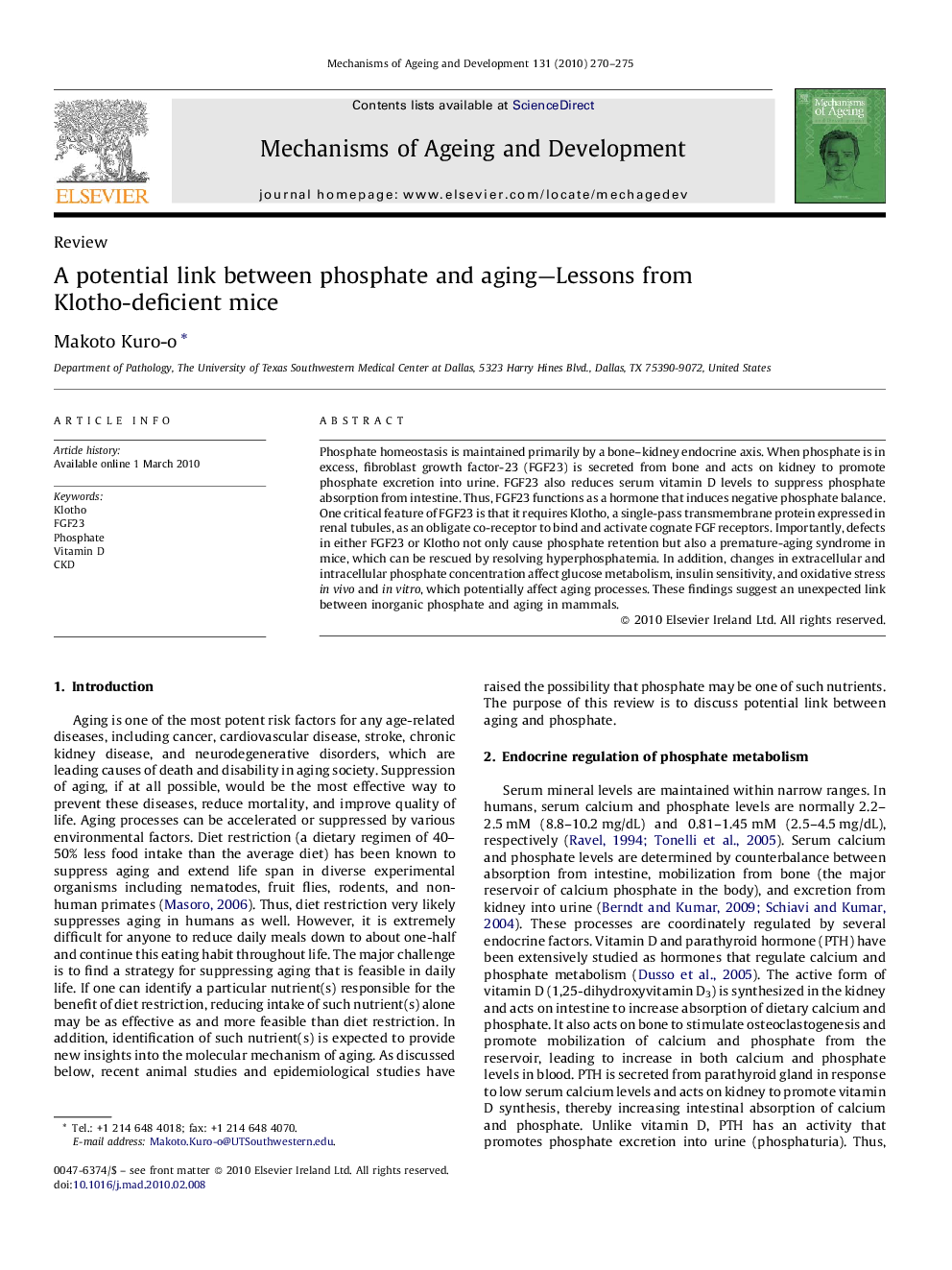| Article ID | Journal | Published Year | Pages | File Type |
|---|---|---|---|---|
| 1919795 | Mechanisms of Ageing and Development | 2010 | 6 Pages |
Phosphate homeostasis is maintained primarily by a bone–kidney endocrine axis. When phosphate is in excess, fibroblast growth factor-23 (FGF23) is secreted from bone and acts on kidney to promote phosphate excretion into urine. FGF23 also reduces serum vitamin D levels to suppress phosphate absorption from intestine. Thus, FGF23 functions as a hormone that induces negative phosphate balance. One critical feature of FGF23 is that it requires Klotho, a single-pass transmembrane protein expressed in renal tubules, as an obligate co-receptor to bind and activate cognate FGF receptors. Importantly, defects in either FGF23 or Klotho not only cause phosphate retention but also a premature-aging syndrome in mice, which can be rescued by resolving hyperphosphatemia. In addition, changes in extracellular and intracellular phosphate concentration affect glucose metabolism, insulin sensitivity, and oxidative stress in vivo and in vitro, which potentially affect aging processes. These findings suggest an unexpected link between inorganic phosphate and aging in mammals.
